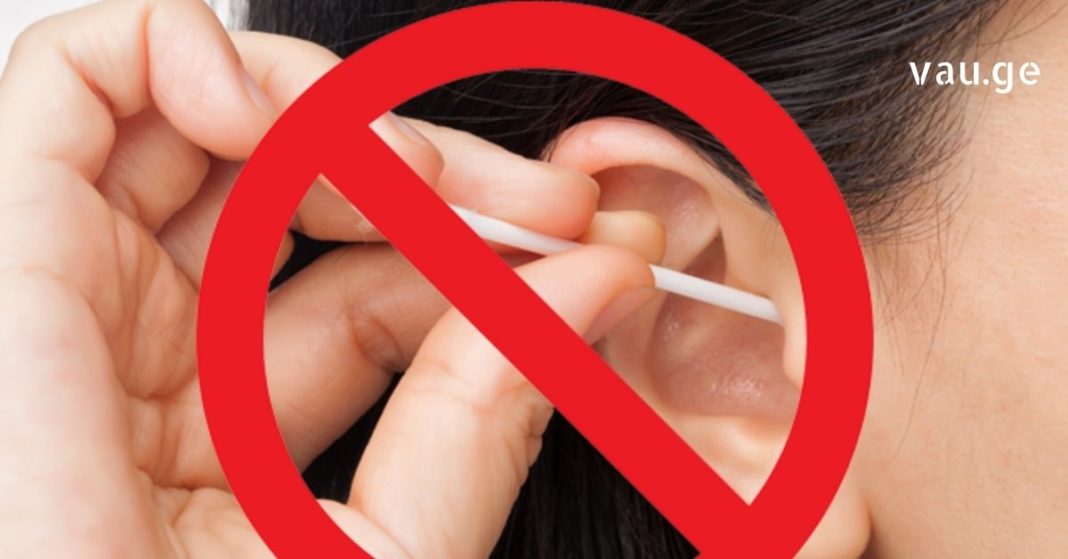Many people are familiar with the discomfort and hearing loss that can occur due to earwax blockages. While it might seem like a minor issue, a wax plug in the ear can significantly affect your quality of life, especially if it leads to decreased hearing, a feeling of fullness in the ear, or even temporary tinnitus.
But why does earwax build up and form blockages in the first place?
There are several reasons for the formation of earwax plugs. First, it’s important to understand that earwax (also called cerumen) is naturally produced by specialized glands located in the external auditory canal. These glands are responsible for producing earwax to protect the ear from dust, bacteria, and other foreign particles.
Under normal circumstances, the ear is self-cleaning. Movements of the jaw — such as chewing or talking — help the earwax migrate from the inside of the ear canal to the outer part of the ear, where it eventually dries up and falls out or can be gently wiped away. However, in some cases, earwax is produced in excessive amounts. This can be due to individual differences, including the overactivity of earwax glands, frequent use of earbuds or hearing aids, or even the use of cotton swabs.
Cotton swabs, in particular, are often used with the intention of cleaning the ears but instead end up pushing the wax deeper into the ear canal. This leads to the wax becoming compacted, forming a plug that’s difficult to remove naturally. Over time, this can result in symptoms such as muffled hearing, itching, pain, dizziness, or even infection if not treated properly.
Another factor that contributes to earwax buildup is the anatomy of the ear canal itself. Some people naturally have narrower ear canals, which makes it harder for wax to exit the ear. In such cases, even normal amounts of earwax can lead to blockages, especially if attempts are made to clean the ear deeply or aggressively.
So, what should you do if you suspect you have an earwax blockage?
The first and most important thing is to avoid inserting anything deep into your ear canal. This includes cotton swabs, hairpins, or any other objects. Not only do these items fail to clean the ear effectively, but they also increase the risk of pushing the wax further in or even damaging the delicate skin or eardrum.
If you are experiencing symptoms of a blockage, you have two main options: visit an otolaryngologist (ENT specialist) for professional removal, or try a safe home remedy to soften and remove the earwax on your own.
\
There’s a simple and effective home remedy that many people have found helpful, and it can be done just once a month. Here’s what you’ll need:
- Olive oil
- Mineral oil
- A dropper
- Hydrogen peroxide
- Cotton balls or cotton pads
Start by mixing equal parts of olive oil and mineral oil. This blend is ideal because both oils are gentle and help soften hardened wax. Fill a dropper with the oil mixture and place 3 drops into each ear. Gently massage the cartilage around your ear — this helps the oil move further into the ear canal without pressure. Then, insert a small cotton ball into each ear. This prevents the oil from leaking out while you sleep.
Leave the cotton in overnight. During this time, the oil will penetrate and soften the wax plug, making it easier to remove. In the morning, after taking a warm shower, remove the cotton balls. Use a cotton pad or swab dampened with hydrogen peroxide to gently wipe away any remaining oil and wax from the outer part of your ear.
Do not insert the peroxide-soaked pad into the ear canal — just use it to clean the visible areas. Hydrogen peroxide can help dissolve excess wax and acts as a disinfectant, but it should be used cautiously and sparingly.
This method is easy, safe, and effective when used correctly. However, it should not be used more than once a month, and if you experience any pain, bleeding, or persistent hearing problems, it’s important to consult a medical professional.
Maintaining ear hygiene is important, but it must be done with care. Remember — your ears are self-cleaning, and most of the time they don’t need any help. Being gentle and cautious with ear care can prevent unnecessary complications and help you maintain healthy hearing for years to come.


















